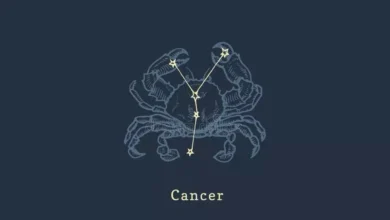Mogalli Ganesh, a Kannada writer, considers writing as a search for humanity
Renowned Kannada author Mogalli Ganesh views writing as a liberating tool as well as a way to express oneself. It helps me digest and let go of the eerie recollections from my early years. He says, “Writing is like setting out on a hunt for humanity in a wide desert. His most recent piece, Naanembudu Kinchittu (Beetle Combination; Rs 425), is narrated against the idea of society as a desert where archaic beliefs persist.

Autobiographies in particular often straddle the line between imagination and actuality. Writers often present themselves in the best possible light, highlighting their accomplishments and downplaying or ignoring less positive parts of their life. Naanembudu Kinchittu, which means “I, The Least,” is how Ganesh flips this conventional script, however. Choosing a rather modest stance, he portrays himself as a bystander to a greater narrative.
He states, “I write to search for humanity and justice,” adding that his mission goes beyond the confines of the individual to include the social structures, where he aims to expose and eradicate the pervasive biases based on caste. “You may compare society to a desert, a place with plenty of different routes. Some of these roads are major thoroughfares full with tension and predetermined beliefs. My research has taken me into the depths of the Indian mentality, which is full of deeply rooted, antiquated ideas despite its outward beauty.
Below the surface, there is a willingness to take severe action, which is indicative of a strange human trait that is seen all over the globe. I want to comprehend and get away from this predisposition toward malevolence. Regretfully, the so-called “progressive” or “civilized” attitude in India still often diverges from the admirable remarks made about mankind. The discrepancy between the two that I find unsettling and worthy of further investigation is the actuality, he continues.
Ganesh writes with optimism and resiliency even if the book focuses on hardship. His objective is to uplift readers with the idea that human spirit can triumph even in the most trying situations and that change is possible. “The human mind is so powerful; it thinks positively even under extreme circumstances,” he adds, adding, “there is a belief that one can survive even at the last breath.”
I still hold out hope for reform and the cancellation of my penalty, even in these last minutes, as if I were hanging metaphorically. At that point, I am very optimistic and full of energy. Since the beginning to the present, my work has always exuded positivity and presented the good since writing may open your eyes to a variety of possibilities.
This memoir’s global relevance strikes a deep chord. Ganesh’s very personal experiences go beyond the person and explore universal realities about adversity and resiliency. “I thought about who I could write to and share my experiences with. I felt that before I wrote, I should address all people, not just members of a certain caste or geographic area. I should speak for everyone, sharing all of my joys and sorrows, describing how I overcame different obstacles and hopped from one location to another. Before I started writing, I thought about the enduring human inclination, which is something that is really important and universal,” he continues.







